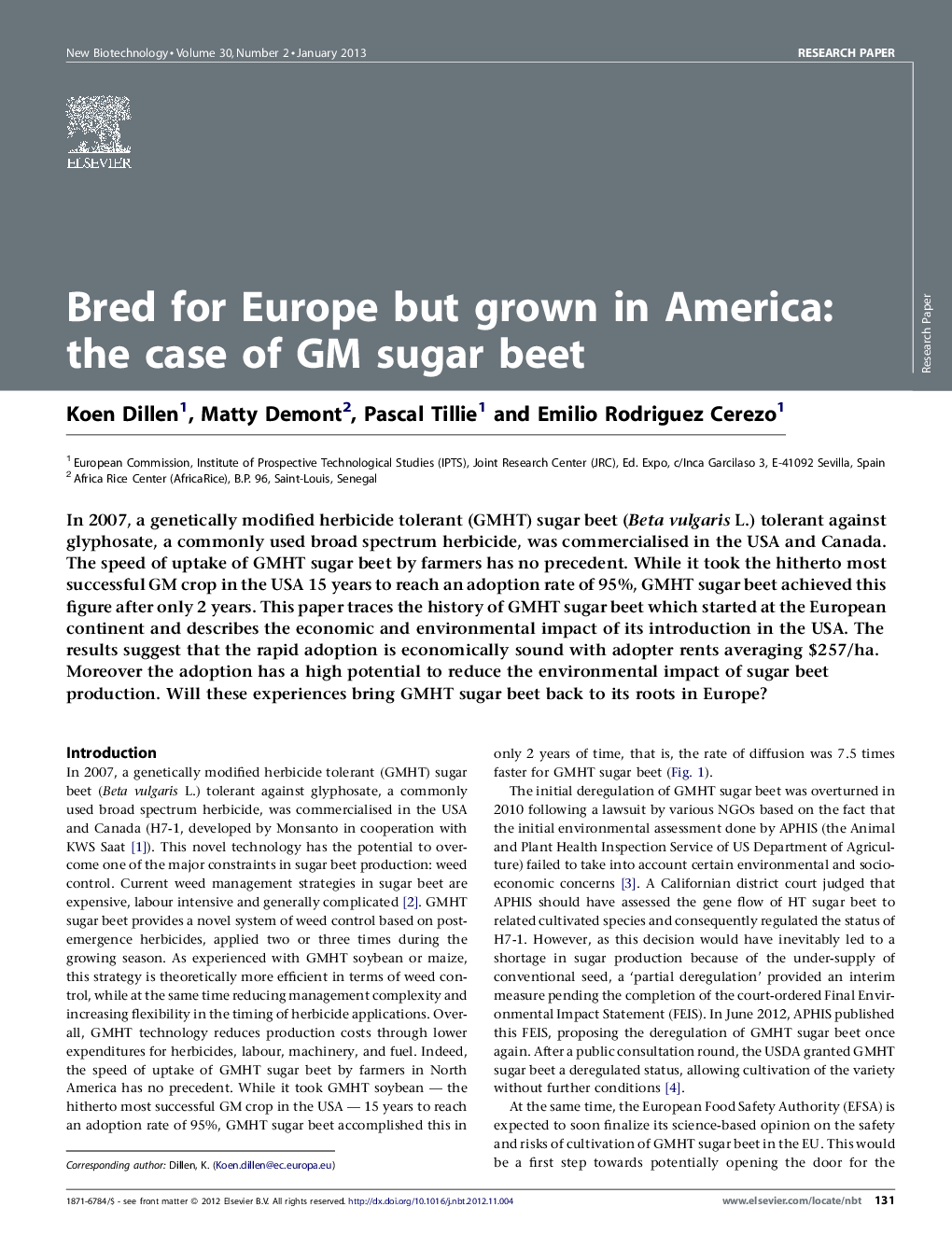| کد مقاله | کد نشریه | سال انتشار | مقاله انگلیسی | نسخه تمام متن |
|---|---|---|---|---|
| 33411 | 44977 | 2013 | 5 صفحه PDF | دانلود رایگان |

In 2007, a genetically modified herbicide tolerant (GMHT) sugar beet (Beta vulgaris L.) tolerant against glyphosate, a commonly used broad spectrum herbicide, was commercialised in the USA and Canada. The speed of uptake of GMHT sugar beet by farmers has no precedent. While it took the hitherto most successful GM crop in the USA 15 years to reach an adoption rate of 95%, GMHT sugar beet achieved this figure after only 2 years. This paper traces the history of GMHT sugar beet which started at the European continent and describes the economic and environmental impact of its introduction in the USA. The results suggest that the rapid adoption is economically sound with adopter rents averaging $257/ha. Moreover the adoption has a high potential to reduce the environmental impact of sugar beet production. Will these experiences bring GMHT sugar beet back to its roots in Europe?
► The adoption of GMHT sugar beet in the US most probably decreased the impact of herbicides on the environment with around 40%.
► Farmers in the US gain on average $257/ha from adopting GMHT sugar beet technology.
► The prospects for GMHT sugar beet in the EU look brighter than before as the policy environment is changing.
Journal: New Biotechnology - Volume 30, Issue 2, 25 January 2013, Pages 131–135